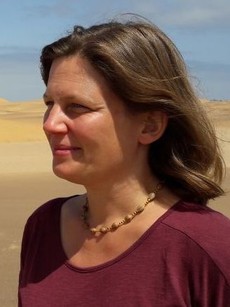Eva Gross
Laureate

Awely, Wildlife and People
Programme Director
Germany
Education / Communications, Sustainable Land Management, Biodiversity / Nature Conservation
Trophée de femmes, 2015
My work focusses on the interaction between people and threatened wildlife species, especially human-wildlife conflicts (HWC). When wildlife negatively impacts on people and vice versa, we speak about HWCs. The centres of highest biodiversity are located in developing countries, which are also characterized by poverty. In African and Asian countries, people living in the vicinity of national parks and other conservation areas mostly receive only little support through the government or conservation organisations. Especially for those people who are dependent on agriculture, damage to fields and harvests can have catastrophic consequences. If no appropriate support is offered, resentment, anger or even hate develops, and the support for wildlife conservation activities declines. For this reason, HWCs were declared as one of the most important conservation topics today. Within my work for the French NGO Awely, Wildlife and People, I study HWCs in African and Asian countries, working intensively with local communities and other stakeholders. Among others, I developed a detailed assessment scheme suitable for all terrestrial ecosystems, and any type of HWCs and any species and compared HWCs in Asia and Africa. Together with different community groups, new ways for the protection of crops and villages against herbivores were developed and tested, such as elephant safe grain stores, cohesive guarding, supported by patrols using chilli guns, or the farming of crops, which are avoided by elephants. Educational tools for several target groups (e.g. schools, farmers, women’s groups) were designed, produced and used. The findings of my work and the experiences we have gained within the last ten years of our projects have strong relevance for the management of wildlife conservation as they can lead to new approaches to the mitigation of HWCs in African and Asian countries.

 EN
EN
